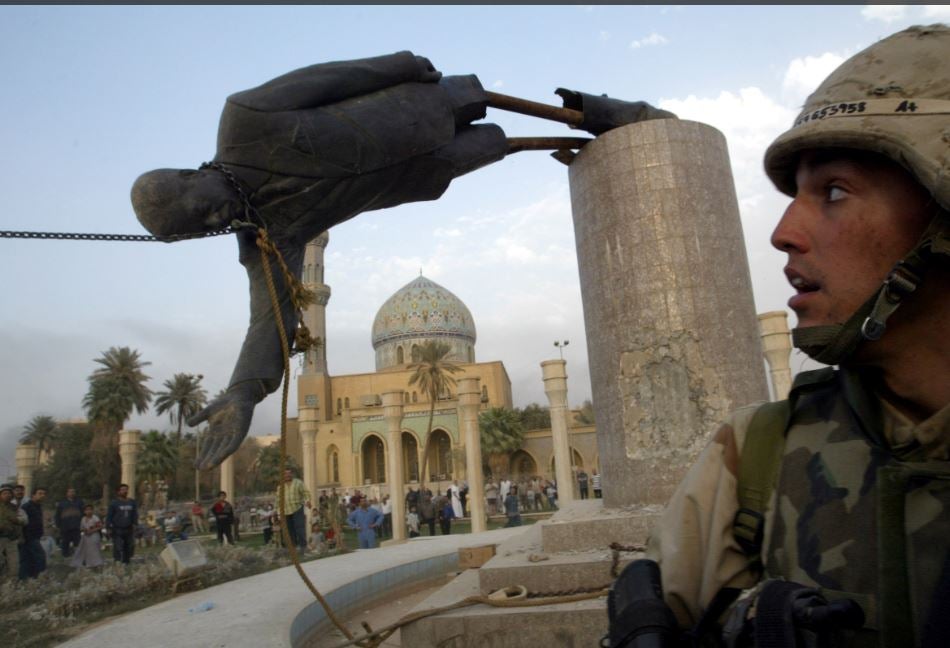
Former Prime Minister Tony Blair was vilified last week following the publication of the Chilcot report – but journalists in the Kurdish north of the country appear indifferent to it.
Press Gazette spoke to two journalists based in Erbil, the capital of Kurdistan.
Patrick Osgood, who is British, and his Iraqi colleague Rawaz Tahir both work for the Iraq Oil Report, a news and research business dedicated to delivering information on Iraqi politics, oil and energy.
Osgood, the Kurdistan bureau chief, said that there is greater security in this part of Iraq than the south and that he feels being British gives him added safety.
He said this is because of the 1991 US-led mission Operation Provide Comfort, which created a no-fly zone over northern Iraq and helped Kurds to escape from Saddam Hussein.
He said: “People will frequently mention Operation Provide Comfort- whether you’re getting into a taxi or you’re speaking to an official.”
According to Osgood, the experience of local journalists is “much more restricted”.
He said: “There are still two very problematic elements of Kurdish media landscape. One is overt politicisation and the dominance of partisan media and the other an element of self-censorship as a result”. Yet he also noted the “free-ish” nature of the Kurdish press.
He emphasised the contrast between the media during Saddam’s “totalitarian” regime and now: “You had government media that was broadcasting government propaganda the whole time. There was no room for anything else.
“Kurdish political activists or journalists were rounded up and sent to prison and many people who were campaigning for liberation were in exile”.
In comparison, now the Kurds, historically a marginalised group of people, have a “varied”, outward looking media scene.
“You have international outlets here like Sky News, the radio, Al Jazeera, smaller people like us, and we have lots and lots of different Kurdish media outlets.”
He went on to say: “There is a Kurdistan press law, which is imperfect but not bad. People are genuinely free to speak their minds outside a couple of core topics”, later adding: “British satirical levels of piss-taking cannot be tolerated”.
He said that the media scene in the south of Iraq is probably more vibrant, with a greater number of small, independent outlets. But he added: “That said, it’s just a much, much more dangerous place”.
The Committee to Protect Journalists has reported that a total of 174 journalists have been killed in Iraq since 1992.
Kurdish households also have more access today to international media than they did pre-2003.
“Kurdistan is increasingly connected to the world, especially young people. The mean age in Kurdistan is 20 so it’s an incredibly young place. They are extremely hungry for good quality information.
“But also they care much more about stuff that’s happening that doesn’t necessarily connect with them.”
He went on to share the following anecdote: “At lunch today Rawaz and I were eating this wonderful Eid lunch and in the background we had Tom Chilcot delivering his speech announcing the report but Rawaz’ sister was asking about Brexit because her family has just moved to the UK so we talked much, much more about Brexit than we did about Chilcot.
“People don’t care about Chilcot,” he laughed.
According to Osgood, the Iraq War has been “old news” in Kurdistan for a number of years.
“People are getting on with their lives and they’re worried about the economy here and security. It’s just not a place that’s obsessing over the past. 2003 and the decisions that went into the invasion are a really long time ago for people here.”
He also noted that the region is currently tackling “existential questions” about its place in Iraq and whether it ought to split from the country. He said that Chilcot is “answering a bunch of questions that nobody here is asking”.
Press Gazette asked Osgood whether or not he thought many journalists in Iraq would be reporting on Chilcot.
“I question whether, like any normal other normal person, any journalist would read it in full.
“Journalists who have been doing good work here have spent more time in the country and spoken to more Iraqis than anybody involved in that report. There’s not that much news to be bringing to journalists here, I don’t think.
“For me, I think what’s happened has been very well documented outside Chilcot. It was journalists who brought attention to these issues in the first place.
“There’s no journalist who is interested in Iraq who has been waiting for Chilcot so that they can be informed about what went on 13 years ago.”
He added that: “Iraqis don’t want to be seen as ‘victims of bad things that the West did’.”
Tahir, Osgood’s colleague, said that Kurds “…have a radically different view of the Iraq War to everyone else”. He explained that the Kurdish people saw Saddam Hussein as a real tyrant and that in their eyes he was “a monster”, using the 1988 Halabja gas attack to illustrate his point.
He said that they saw the removal of Saddam from power as “a good thing”.
However, the Kurdish journalist went on to say that in Iraq as a whole there is now greater “lack of security” and also a lack of rule of law.
Osgood responded: “That’s where unfortunately some of the nostalgia kicks in. But without the removal of Saddam Hussein we wouldn’t have any journalists in Iraq at all. It would have been particularly impossible.”
He added: “Journalism is something that is digested intensively by Kurds, certainly, and I think by most Iraqis. Overwhelmingly news is driven through social media. It is a very popular thing…people talk about it constantly. Iraqis love talking about politics.”
Email pged@pressgazette.co.uk to point out mistakes, provide story tips or send in a letter for publication on our "Letters Page" blog
